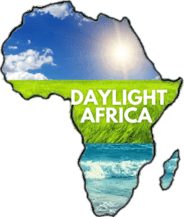Ghana, often referred to as the “Gold Coast” due to its abundant natural resources, is a country rich in history, culture, and natural beauty. Located in West Africa, it is bordered by Côte d’Ivoire to the west, Burkina Faso to the north, Togo to the east, and the Gulf of Guinea to the south.
Ghana, known as the “Gold Coast,” shines with its history, culture, and beauty. Located in West Africa, it borders Côte d’Ivoire, Burkina Faso, Togo, and the Gulf of Guinea.
Historical Overview
Ghana’s history stretches back thousands of years. Modern Ghana is named after the ancient Ghana Empire. Various states and kingdoms, like the Ashanti Empire, united to form today’s Ghana.
In the 15th century, Portuguese explorers arrived, attracted by gold. This led to centuries of trade and colonialism. Ghana gained independence from Britain on March 6, 1957. Kwame Nkrumah became the first Prime Minister and later President.
Culture and Society
Ghana is home to many ethnic groups, with the Akan being the largest. The country celebrates its rich cultural heritage through vibrant festivals, traditional music, dance, and colorful textiles like Kente cloth. Festivals like Homowo, Aboakyir, and the Ashanti Yam Festival showcase the country’s traditions.
Ghanaians speak multiple languages. English is the official language, but many speak Twi, Ga, Ewe, and Hausa.
Natural Beauty and Economy
Ghana’s landscape includes rainforests, savannas, and beautiful beaches. Attractions like Kakum National Park and Mole National Park are popular.
Ghana is a leading producer of cocoa and has gold and oil reserves. Agriculture, mining, and manufacturing drive the economy. Tourism also plays a growing role. The discovery of oil in 2007 boosted the economy further.
Modern Ghana
Today, Ghana enjoys a stable political climate. Accra, the capital, is a bustling hub for commerce and culture.
Education and healthcare have improved, raising living standards. Ghana advocates for regional integration and peace, playing a key role in organizations like the African Union and ECOWAS.
Conclusion
Ghana is a country of rich history and cultural depth. Its journey from ancient civilizations to modern democracy shows the resilience and ingenuity of its people. Exploring its heritage, natural wonders, and dynamic economy, Ghana continues to inspire and progress in Africa.

